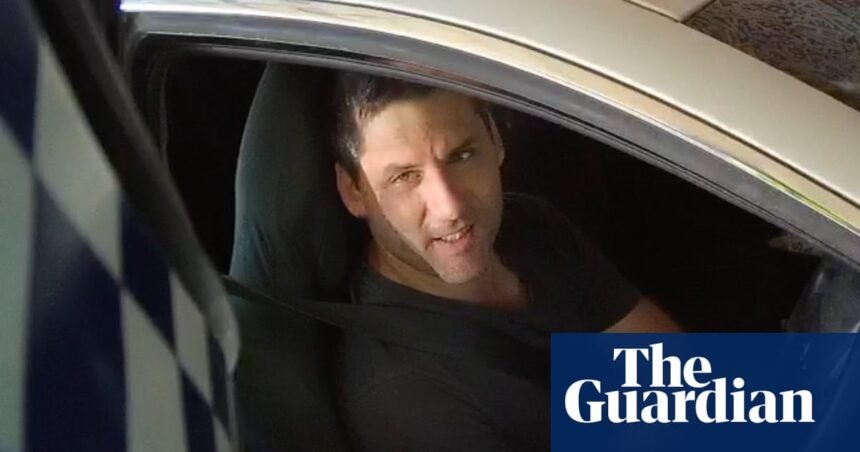Joel Cauchi’s psychiatrist of eight years discharged him into the care of his doctor at a time when he was at “significant risk” of relapsing into psychosis, an expert has said amid a probe into the mental health and care of Cauchi.
On Thursday, the coronial inquest examining the fatal stabbing of six people by Cauchi at Westfield Bondi Junction in April 2024 heard from a panel of psychiatrists who provided expert opinions on Cauchi’s treatment.
The inquest, scheduled for five weeks, is Cauchi, then 40, killed Ashlee Good, 38, Jade Young, 47, Yixuan Cheng, 27, Pikria Darchia, 55, Dawn Singleton, 25, and Faraz Tahir, 30, and injured 10 others at the shopping centre on 13 April last year before he was shot and killed by police officer Amy Scott.
At the time, Cauchi was not medicated for his schizophrenia, the coroner’s court has heard. He had been weaned off medication by a psychiatrist and was meant to be monitored, but wasn’t.
Hearing voices and writing “satanic” notes
The court heard that clozapine – which can have severe side effects – was generally considered a lifelong medication for people with treatment-resistant schizophrenia due to a high relapse rate of 77% after one year and 90% after two years for those who stopped taking it.
Prof Anthony Harris, a New South Wales psychiatrist said Cauchi was discharged to his doctor when he was still at “significant risk” of relapse.
Prof Merete Nordentoft, a psychiatrist in Denmark, told the Sydney court that there were “red flags” after Cauchi ceased taking his medication completely in June 2019.
This included concerns raised by Cauchi’s mother with his psychiatrist that he was was hearing voices, and writing satanic notes.
The court heard that Cauchi had agreed with a nurse to begin again taking a small dose of medication, but he then changed his mind. Nordentoft described this as a “missed opportunity”, however it was a “difficult situation” given his father – who also lives with schizophrenia – contradicted his mother’s wishes and was “adamant” Joel Cauchi shouldn’t go back on medication.
Prof Edward Heffernan, a Queensland psychiatrist, told the court Dr A could have taken a more “assertive approach”.
But Prof Olav Nielssen, a Sydney-based psychiatrist, told the court: “The thing we can’t know is how much Mr Cauchi pushed back against the advice. My guess is it’s not just his father, it’s he himself who is quite determined.”
The court heard that three days after Cauchi’s mother again reported concerns, Dr A met with him on Skype – a monthly arrangement that was made after he moved to Brisbane – and reported he appeared well.
The court heard Cauchi may have been masking some of his symptoms.
The experts agreed the psychiatrist should have taken more note of his mother’s concerns, with Heffernan saying this also should have been included in Dr A’s discharge notes to Cauchi’s GP.
The court heard Dr A also did not include a recommendation thereafter that Cauchi be monitored monthly.
‘I don’t disagree with going along with his [Cauchi’s] wishes’
The court heard that throughout Cauchi’s medical history there is evidence that he “wanted to be well” and was medicated for 16 years.
The inquest was told Cauchi’s schizophrenia was likely hereditary. He had a similar IQ to the average doctor and had gone to a private school on a scholarship.
However, his “performance IQ” – which includes functions like tying shoe laces – had deteriorated.
“He had a deterioration in some of his cognitive functions, which was very significant, [and] almost certainly due to schizophrenia [and] … possibly something to do with cannabis,” Large told the court.
Over the 16 years he continued to have psychotic symptoms, but the court heard that in the four to five years before ceasing his medication Cauchi did not, or at least – one psychiatrist pointed out on Thursday – “it was not detected”.
after newsletter promotion
The senior counsel assisting, Peggy Dwyer SC, asked the psychiatrists if taking Cauchi off his medication was a mistake, in hindsight. Nielssen told the court there was a good and “ongoing therapeutic relationship”.
“I don’t disagree with going along with his [Cauchi’s] wishes,” he told the court.
Prof Matthew Large, a psychiatrist in NSW, said that question was open to “hindsight bias” and the decision to cease Cauchi’s medication was within guidelines.
Nielssen told the court that homicide of strangers by people with schizophrenia was rare, with one occurring in New South Wales about every two years.
He said a “feature of that small group” was having gone off medication, and homelessness. Cauchi was unmedicated and homeless at the time of the Bondi Junction stabbings.
Nordentoft told the Sydney court: “Most people with schizophrenia will never commit an act of serious violence, but a disproportionate number of homicides are committed by people with psychotic illness.”
Those who do harm others, Nordentoft said, usually had delusions including thinking they were “being followed and somebody is trying to harm you, and therefore you need to protect yourself”.
She said in Copenhagen there were clinics that supported patients who wanted to come off anti-psychotic medication. The patients had weekly monitoring for 18 months.
But, the psychiatrist told the court, most people found they couldn’t completely end their medication.
“The patients actually get a higher level of acceptance that this treatment is needed,” she said, noting the process had a silver lining.
Nordentoft assessed for the court the January 2023 incident in which he called police to his house claiming his dad had stolen his knives.
During the police’s visit his mum told the police she was concerned he would not get treatment unless he did “something drastic”.
Nordentoft said in Denmark there is a psychiatry emergency outreach where police and families can call for the service.
She said had such a call-out happened in Australia in the wake of concerns about his knives, and she was the responding psychiatrist, she would have had him “compulsory” admitted to a hospital.
“It was clear he was psychotic and that he could be of potential danger to others,” she said.







